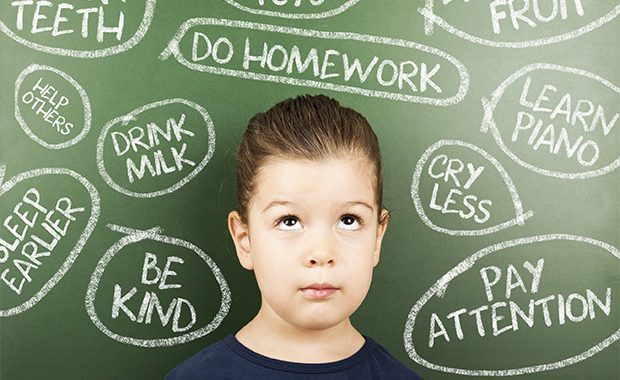We all know that social media are a big part of our lives. We use them to stay connected with friends and family, to get news and information, to be entertained – the list goes on and on. But what about our kids? Should they be using social media? What are the benefits? And what are the risks? In this article, we'll take a look at both sides of the argument and try to come to a conclusion about whether or not kids should be using social media.
Should you let your kids use social media?
Social media for kids is a big topic these days. On the one hand, there are many benefits to using social media – it lets kids stay connected with friends and family, get news and information, and be entertained. On the other hand, there are also some risks associated with using social media – kids can be exposed to inappropriate content, cyberbullying, and more. So what should parents do? Should they allow their kids to use social media? Let's take a look at the most relevant channels today.
The most popular social media platforms for kids include Facebook, Instagram, Whatsapp, Twitter and TikTok. All of these platforms have age restrictions in place – you must be 13 or older to create an account on Facebook, Instagram and all of the others. That said, not all kids follow the age restrictions – plenty of young children have accounts on these platforms. In fact, a study from Social Media Link found that 66% of parents believe their child is safe online if they are only using apps meant for their age group.
Another study from the same company found that 43% of parents are concerned about their children being exposed to inappropriate content on social media. This is a valid concern – there is a lot of inappropriate content out there, and kids can be exposed to it if they're not careful. That said, there are ways to mitigate this risk – you can use parental controls to limit what your child can see, and you can talk to them about what they should and shouldn't be looking at online.
Cyberbullying is also a big concern for parents when it comes to social media for kids. Social media gives bullies a new way to harass and intimidate their victims – they can do it anonymously, and they can reach a wider audience than ever before. again, there are ways to mitigate this risk – you can talk to your child about cyberbullying, and you can help them learn how to stand up for themselves online. You can also use parental controls to limit who your child can interact with on social media.
So should parents allow their kids to use social media? That's a decision that every parent has to make for themselves. There are benefits and risks associated with social media for kids, but there are also ways to mitigate the risks. If you're concerned about your child being exposed to inappropriate content or cyberbullied, talk to them about it and consider using parental controls. Ultimately, the decision is up to you.
Influencers: Blessing or Curse?
In recent years, social media influencers have become increasingly popular, particularly among young people. With their carefully curated images and seemingly perfect lives, influencers can seem like aspirational role models. However, recent studies suggest that they may also have a negative impact on children’s self-esteem and body image. One study found that exposure to social media was associated with increased levels of anxiety, depression, and body dissatisfaction in girls. Another study found that boys who followed “thinspiration” accounts on Instagram were more likely to develop an eating disorder. These studies suggest that children are particularly vulnerable to the negative effects of social media influencers.
While it is important to be aware of the potential risks of following social media influencers, it is also important to remember that not all influencers are created equal. There are many influencers who use their platforms to promote positive messages about body image, self-acceptance, and self-love. These more positive influencers can serve as helpful role models for children. When choosing which influencers to follow, parents should encourage their children to seek out those who promote healthy messages about body image and self-esteem.
How to help your kids use social media
When it comes to social media, there are a lot of things for parents to consider. What platform is right for your child? How should they create their account and profile? And what should they share (or not share) on social media?
Here are a few tips to help you navigate these questions:
Pick the right platform: There are a lot of different social media platforms out there, so it's important to pick the one that's right for your child. If they're interested in staying in touch with friends and family, then a platform like Facebook or Instagram might be a good choice. If they're interested in sharing their thoughts and opinions on current events, then a platform like Twitter might be a better option.
Help them create an account and profile: Once you've chosen the right platform, you can help your child create an account and profile. For most platforms, you'll need to provide an email address and create a password. You'll also need to choose a username and profile picture. Help your child pick a username that's appropriate and unique, and encourage them to choose a profile picture that represents them well, without giving away too much information about their gender, age or place of living.
Encourage them to share responsibly: Social media can be a great way for children to connect with friends and family, but it's important to encourage them to share responsibly. This means not sharing personal information like their home address or phone number, not posting pictures that could embarrass or hurt someone's feelings, and not engaging in cyberbullying. If you're concerned about your child's online activity, you can use parental controls to limit what they can see and do on social media.
The pros of social media for kids
There are several benefits to using social media for kids. Here are just a few:
Staying connected with friends and family: Social media platforms like Facebook and Instagram allow kids to stay in touch with friends and family members from all over the world. This can be really helpful for kids who are away from home for school or travel.
Sharing photos and thoughts: Social media platforms also give kids a place to share photos and thoughts about their day-to-day lives. This can be a fun way for kids to stay connected with friends and family, and it can also help them learn more about the people they care about.
Finding out about current events: Social media platforms like Twitter and Instagram can also be a great way for kids to learn about current events. Kids can follow news outlets, journalists, and other sources to get up-to-date information on what's happening in the world.
A cool way of information: Social media is a cool way to read news and interesting stories. Kids don't want to watch “normal” television once they reach a certain age. Instead, they want to be engaged and learn in a stimulating way, such as through social media platforms.
Trending videos, challenges and topics: Social media is a great way for kids to see what's trending, both in their personal lives and on a global scale. They can watch videos, participate in challenges, and learn about new topics that they may be interested in.
These are just a few of the many benefits of social media for kids. And there are a lot of platform-dependent features that make social media great for kids. But before you let your child start using social media, there are also a few negative things you should keep in mind.
The cons and risks of social media for kids
Social media can be a great way for kids to stay connected with friends and family, but it's important to be aware of the risks. Some things to watch out for include:
– Kids sharing too much personal information, like their home address or phone number.
– Kids posting pictures that could embarrass or hurt someone's feelings.
– Kids engaging in cyberbullying.
– Kids seeing inappropriate content, like violence or pornography.
– Kids spending too much time on social media and not enough time on other activities, like schoolwork or hobbies.
– Kids becoming addicted to social media and struggling to break the habit.
– Kids feeling isolated from the real world because they spend most of their time online.
– Kids being stalked or bullies online.
The pros and cons of social media for kids are vast. On one hand, social media can be a great way for kids to stay connected with friends and family, learn about current events, and see what's trending. On the other hand, social media can also be risky because kids can share too much personal information, post inappropriate content, become addicted to social media, and feel isolated from the real world.
Additionally, peer pressure from classmates and other kids can add another layer of complication to the decision of whether or not to let your child use social media. Ultimately, it's up to parents to decide what is best for their child and to monitor their child's online activity.
How to decide what's best for your kids
As a parent, it's your job to make sure your kids are safe both online and offline. While there's no one answer for whether or not you should let your kids use social media, there are some things you can take into consideration to help you make an informed decision.
For example, consider your child's age and maturity level. If they're younger, they may not be ready to handle the responsibility of having a social media account. You should also think about how much supervision and guidance you're willing to provide. If you're comfortable monitoring your child's activity and helping them navigate the online world, then they may be ready for social media. However, if you're not up for that level of engagement, it might be best to wait.
There are also practical considerations, like whether or not your child already has friends who are using social media. If they're the only one in their group without an account, that can put them at a disadvantage.
I can highly encourage you to talk to your child's teacher and parents of classmates. Most teachers have a sixth sense and know what's moving kids at certain times and what may be good or bad at a certain age.
Your decision will also likely depend on your parenting style. If you're a more hands-on parent, you may be more comfortable with letting your child use social media if you can monitor their activity. On the other hand, if you're a more laissez-faire parent, you may be okay with giving your child more freedom to explore social media on their own.
No matter what decision you make about social media for kids, it's important to set clear rules and expectations from the beginning. Be sure to talk to your kids about cyberbullying, Internet safety, and responsible online behavior before they start using social media. Additionally, it's a good idea to establish ground rules for how much time they can spend on social
Ultimately, the decision of whether or not to let your kids use social media is up to you. But by taking the time to weigh all the factors involved, you can make sure you're making the best decision for your family.
Takeaways
Social media can have a lot of benefits for kids, but it's important to be aware of the risks too. Parents should consider their child's age and maturity level, as well as how much supervision and guidance they're willing to provide. It's also important to set clear rules and expectations from the beginning. By taking all these things into consideration, parents can make sure they're making the best decision for their family when it comes to social media for kids.
What is your opinion on social media for kids? Are there any benefits that you see that we didn't mention in the article? Let us know in the comments below!








































